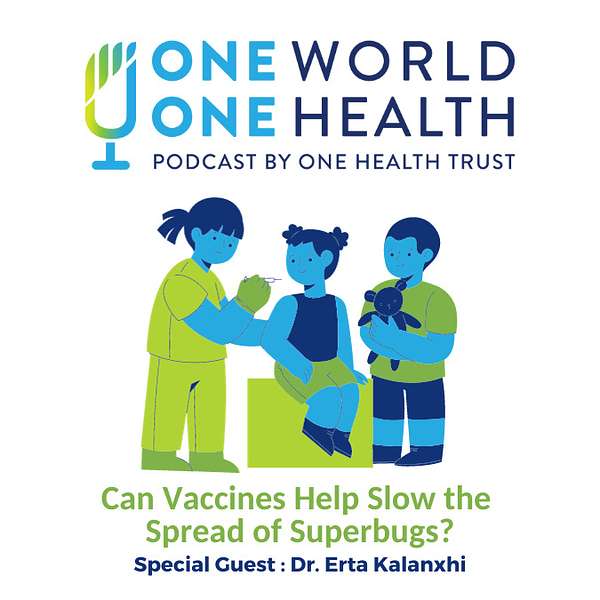
One World, One Health
One World, One Health
Can Vaccines Help Slow the Spread of Superbugs?
Vaccines are lifesavers. Childhood vaccines save 4 million lives every year, according to the US Centers for Disease Control and Prevention. And it turns out vaccines don’t just save lives by directly preventing disease. They can save lives by reducing the rise of drug-resistant pathogens (mostly bacteria and viruses). This is because people who are vaccinated are less likely to get sick and to get treated either appropriately or inappropriately with antibiotics and antiviral drugs. And less use of these valuable drugs means less opportunity for germs to develop resistance to them.
The One Health Trust set out to quantify just how well vaccination could reduce the emergence and spread of antimicrobial resistance or drug-defying germs.
The latest report from the One Health Trust pulls together a variety of studies showing the impact of vaccines not only on drug resistance but also on economies, especially in low- and middle-income countries.
Some highlights:
- A typhoid vaccination campaign for infants could prevent more than 53 million cases of drug-resistant typhoid in low- and middle-income countries over 10 years.
- A successful rotavirus vaccination program in Africa and Asia could prevent more than 13 million cases of diarrhea that otherwise would be treated with antibiotics – reducing opportunities for bacteria to evolve resistance to those drugs.
- In Indonesia alone, vaccinating 50% of eligible people with pneumococcal vaccine over five years could save more than US$2 million in costs related to treatment failure.
One Health Trust Fellow and Director of Partnerships, Dr. Erta Kalanxhi, led the team that put together the report. Listen as she chats with One World, One Health host Maggie Fox about how vaccines can prevent the rise of drug-resistant bacteria and viruses.
.jpg)